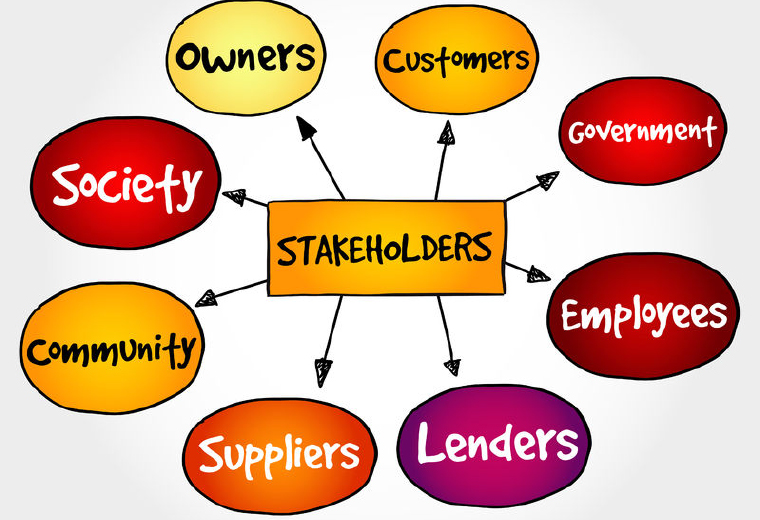What is ISO 50001?
NOTE: ISO 50001 IS IN A TRANSITION PERIOD, THE DEADLINE IS 31ST JANUARY 2022. FOR CLIENT GUIDANCE AND TOOLS TO SUPPORT YOU DURING THIS TRANSITION PLEASE CLICK HERE
What is ISO 50001?
ISO 50001:2018 is the newly revised international standard for Energy Management providing the most robust framework for optimising energy efficiency in public and private sector organizations.
ISO 50001 certification demonstrates an organization’s commitment to continual improvement in energy management, allowing them to lead by example within their respective industries and ensure related legislative and regulatory requirements are met.
It will also provide organizations with a standard that ensures requirements are met for compliance with the Energy Saving Opportunities Scheme (ESOS) UK legislation.
We have certified a wide range of organizations in different sectors including EPS Pumping and Treatment Systems, ETDE at the Cabinet Office and Costa Coffee.
ISO 50001 has seen a 9.7% increase in worldwide certificates in 2020, showing the growth and importance of UKAS accredited certification in recent times. Statistics straight from the most recent ISO Survey.
Looking to implement an ISO 50001 management system? Not sure where to start? Take a look at our ISO 50001 Implementation Guide here.
ISO 50001 Transition Essentials
You can find more information about this standard and the differences by downloading the NQA ISO 50001 Gap Guide below.
Please note: Existing NQA ISO 50001 clients can get transition support and can download the gap analysis document that must be completed prior to a transition audit.
Helps you with
- Energy Policy
- Energy Efficiency
- Carbon Reduction
- Energy Security
- Cost Control
- Legal Compliance
- Culture Change
- Corporate Responsibility
- Reputation
- Resource Management
- ESOS Compliance in the UK
Benefits of ISO 50001 Certification
Reduced operating costs
Significant financial savings can be achieved through increased energy efficiency (OFGEM forecast energy prices to rise by at least 20% by 2020).
Improve efficiencies
Encourages a more effective use of your resources, in turn reducing amount of claims, returns, reprocesses and rejections - potentially lower levels of regulatory reporting.
Reduced carbon footprint
Actively set goals to reduce your carbon footprint and people will respond positively to your organization.
Legal compliance
Understand how statutory and regulatory requirements impact your organization and its customers.
Proven business credentials
Independent verification against a globally recognized industry standard speaks volumes.
Ability to win more business
Procurement specifications often require certification as a condition to supply, so certification opens doors.
Is ISO 50001 certification right for me?
ISO 50001 certification is right if you and your organization want to take control of the way you use energy and manage the related costs more effectively. It is particularly beneficial for organizations with significant energy expenditure.
If you already hold certification to ISO 14001, the ‘basic framework’ is already there and the benefits of ISO 50001 are within reach. If you already have an ISO 14001 environmental management system in place, then you are already on route to ISO 50001 compliance.
Transition to ISO 50001:2018
For those organisations who have already been through the transition process on either ISO 9001 or ISO 14001 you will be familiar certificates to the ‘old’ version will expire on 20th August 2021.
Whilst this may seem a long way off, we recommend that an early start to the process would be beneficial. We at NQA recommend therefore starting to prepare for the transition as early as possible and plan properly to incorporate needed changes into your management system.
Specifically we suggest that you:
-
Ensure that relevant staff within your organization are trained and understand the requirements and key changes to the standard.
-
Identify gaps which need to be addressed to meet the new requirements and establish an implementation plan. Implement those actions and update your management system to meet the new requirements.
-
Evaluate the effectiveness of implementation through internal audits and the NQA transition gap analysis form which will be available soon.
This standard is changing
ISO 50001 certification demonstrates an organization's commitment to continual improvement in energy management and several changes have been made to the 2011 version of the standard to bring it in line with the needs of today’s business environments. Organizations holding ISO 50001:2011 should be aware ISO 50001:2018 has now been published (21st August 2018) and the 3 year transition clock has started ticking.
The main change is the adjustment of the standard to align it with Annex SL the ‘high level structure’ as already seen in the 2015 versions of ISO 14001, ISO 9001 and the newly released ISO 45001 Health and Safety standard.
Other changes include normalization of environmental performance indicators (EnPIs) and associated energy baselines (EnB), clarification on the requirements of the energy data collection plan, and a general focus on ensuring the key concepts related to energy performance are clear and accessible for small and medium-sized businesses (SMEs).
NQA will be working towards the transition and, following the process undertaken for ISO 9001 transition in 2015 will be releasing guides, training and further information regarding the actual transition process and how it affects our clients.
“The certification process allowed us to have a full reassurance that the system we had implemented and the actions we were taking were on the right track and would support the continual improvement of our energy performance.” Costa Coffee / Whitbread Plc
Steps to Certification
-
Step 1
Complete a Quote Request Form so that we can understand your company and requirements. You can do this by completing either the online quick quote or the online formal quote request form. We will use this information to accurately define your scope of assessment and provide you with a proposal for certification.
-
Step 2
Once you’ve agreed to your proposal, we will contact you to book your assessment with an NQA Auditor. This assessment consists of two mandatory visits that form the Initial Certification Audit. Please note that you must be able to demonstrate that your management system has been fully operational for a minimum of three months and has been subject to a management review and full cycle of internal audits.
-
Step 3
Following a successful two stage audit, a certification decision is made and if positive, then certification to the required standard is issued by NQA. You will receive both a hard and soft copy of the certificate. Certification is valid for three years and is maintained through a program of annual surveillance audits and a three yearly recertification audit.
ISO 50001 Toolkit
Related ISO 50001 Content
Ready to start your journey?
What's next
Get in touch today to begin your journey to a greener, more sustainable business and a member of our team will be in touch to discuss your requirements:



